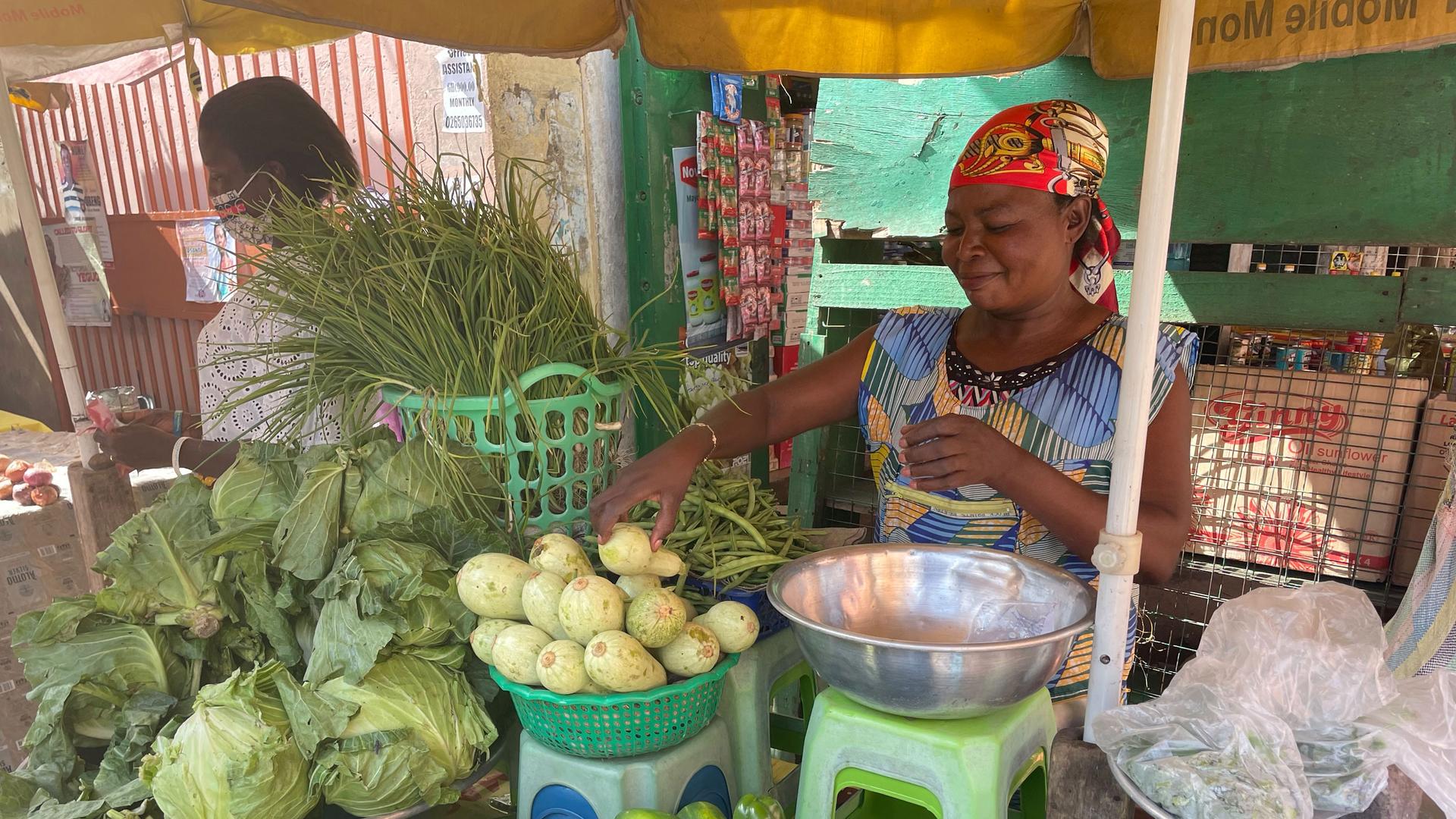‘We might be pushed out of business’: Ghana’s vegetable sellers see produce dwindle due to climate change
It is a hive of activity at the Malata market in Accra, Ghana, as dozens of vegetable sellers display their items to woo passersby.
Seller Yaa Asantewaa calls potential customers to her table, showing off her cabbage, carrots, lettuce and other vegetables.
Asantewaa said she used to enjoy booming sales, especially leading up to Christmas. But over the last few years, her sales have been down by almost half and she often works against the fear that she and other vegetable sellers may get pushed out of business due to scarce production by farmers.
Related: DR Congo faces criticism as it opens rainforest to commercial logging
“Sales have really gone down and I’m struggling to break even. The farmers who supply the vegetables are not producing as much as they should, because of drought. They don’t even have the irrigation technologies, so things are really tough.”
“Sales have really gone down and I’m struggling to break even. The farmers who supply the vegetables are not producing as much as they should, because of drought. They don’t even have the irrigation technologies, so things are really tough,” she told The World.
Related: How the West’s obsession with fast fashion compounds an environmental nightmare in Ghana
In West Africa, and across the continent, many citizens are already feeling the impact of climate change on a daily basis, with more frequent periods of drought and heavy rains threatening agricultural production.
According to the United Nations’ latest report on climate change in Africa, at least 1.3 billion people are especially vulnerable to a changing climate. “The State of the Climate in Africa” report released this month found that climate change will lower the gross domestic product in Africa by 3%, hindering progress toward poverty alleviation and economic growth across the continent.
Nearby, vegetable seller Adwoa Boadu hawks onions. She said she shares similar challenges with Asantewaa and others.
“Now the onion business is dead because of the changing weather. The farmers simply transfer all their losses to us. We might be pushed out of business soon.”
“Now the onion business is dead because of the changing weather. The farmers simply transfer all their losses to us. We might be pushed out of business soon,” she said.
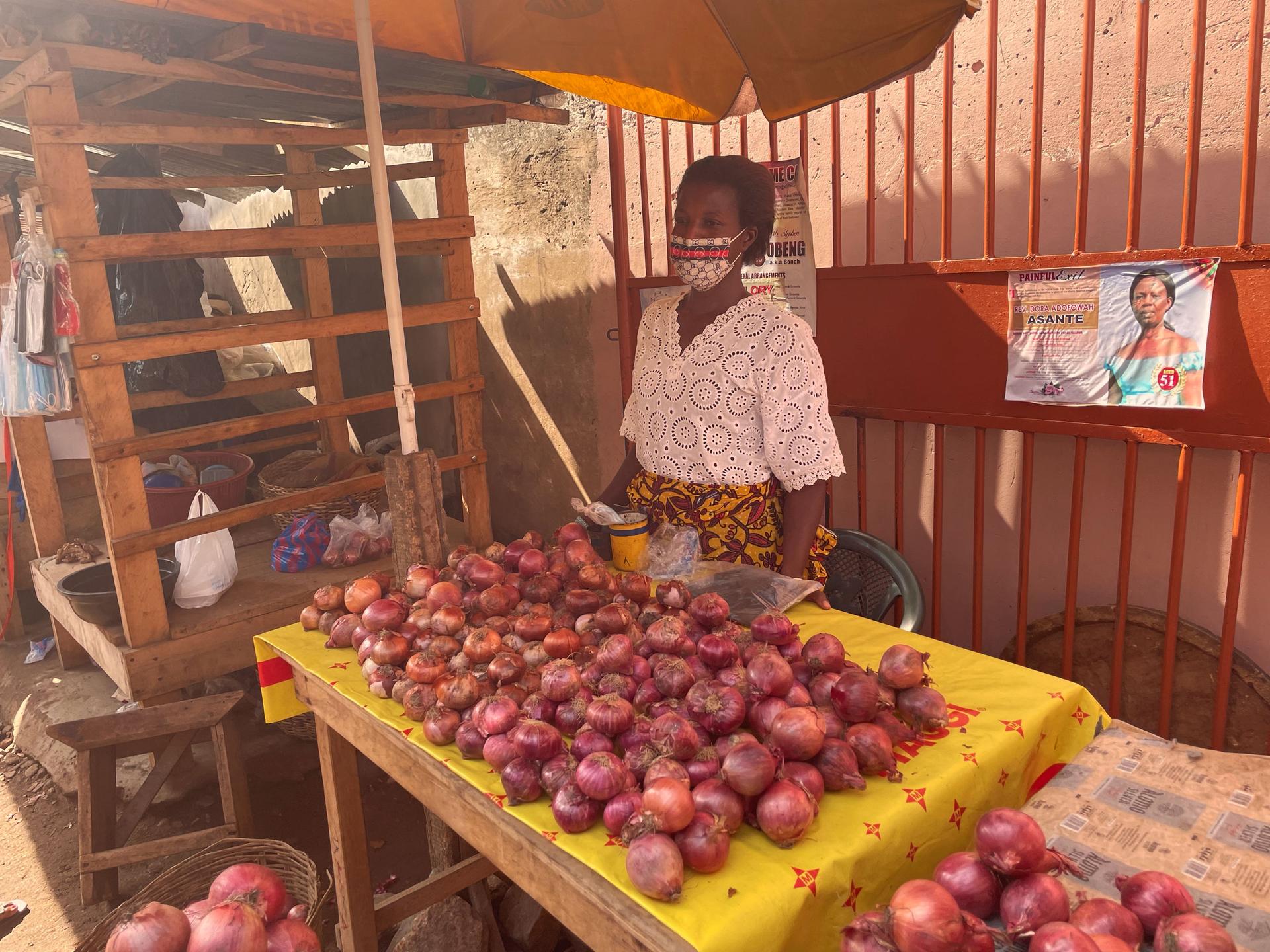
Agriculture is the backbone of the Ghanaian economy, contributing to about one-fifth of the country’s GDP, and it employs more than half the labor force.
The new report, produced in partnership with the World Meteorological Organization (WMO) and other agencies, shows that conditions may get worse before they get better for vegetable sellers like Asantewaa, Boadu, and millions across Africa.
“Communities in Africa are exceptionally vulnerable to climate change. Almost half of the population in sub-Saharan Africa live below the poverty line.”
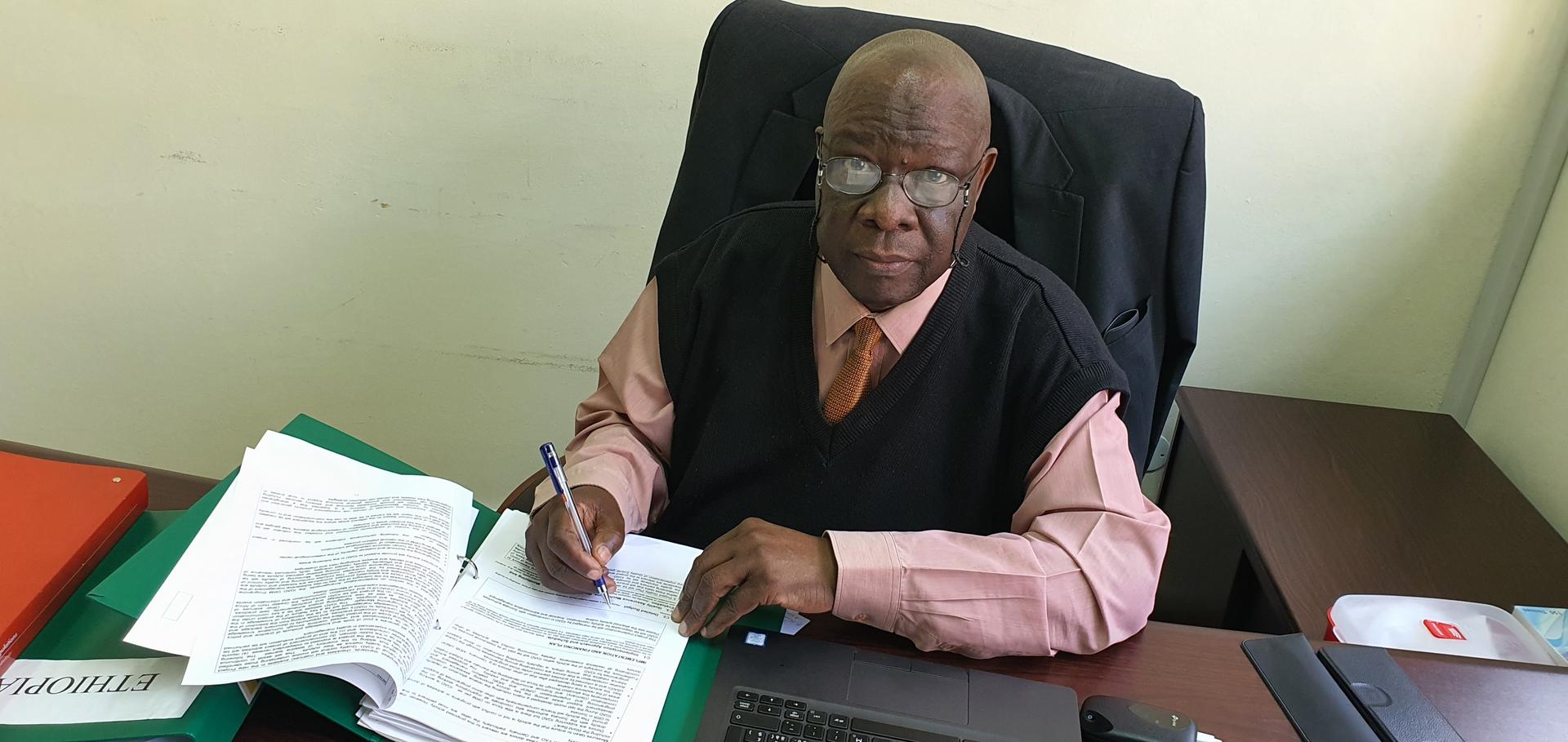
“The State of Climate Report for 2020 shows a grim forecast about climate change lowering GDP in Africa,” said Dr. Joseph Mukabana, a senior research officer at the WMO in Africa.
Mukabana also said that’s because changing precipitation patterns, rising temperatures and more extreme weather will impact agriculture. And that means more food insecurity, poverty and displacement.
“Communities in Africa are exceptionally vulnerable to climate change. Almost half of the population in sub-Saharan Africa live below the poverty line,” he said.
He explains that many African economies are dependent on weather-sensitive activities, like rain-fed agriculture, and that means a drought or heavy rains are more likely to spell disaster.
“There are more disasters in Africa related to climate change than in other regions. And also, lots of deaths and economic losses that amount to billions of dollars,” he said.
Related: Climate divestment activists draw inspiration from South Africa
Industrialized countries have promised funding to help developing countries adapt to a changing climate. But so far, it’s been slow to arrive.
Carlos Lopes, an economist with the African Climate Foundation, said industrialized nations make promises about providing funding for Africa, but the annual $100 billion climate finance commitment outlined in the Paris agreement has never been met.
Related: Glasgow climate talks: Africa negotiators mobilize for climate finance
He said that funding is key to building a greener future in Africa.
“The future of Africa is entangled with the rest of the world, but entangled in a way that can produce another cycle of dependence and inequality or an opportunity for us to be net contributors of climate action.”
“The future of Africa is entangled with the rest of the world, but entangled in a way that can produce another cycle of dependence and inequality or an opportunity for us to be net contributors of climate action,” he said.
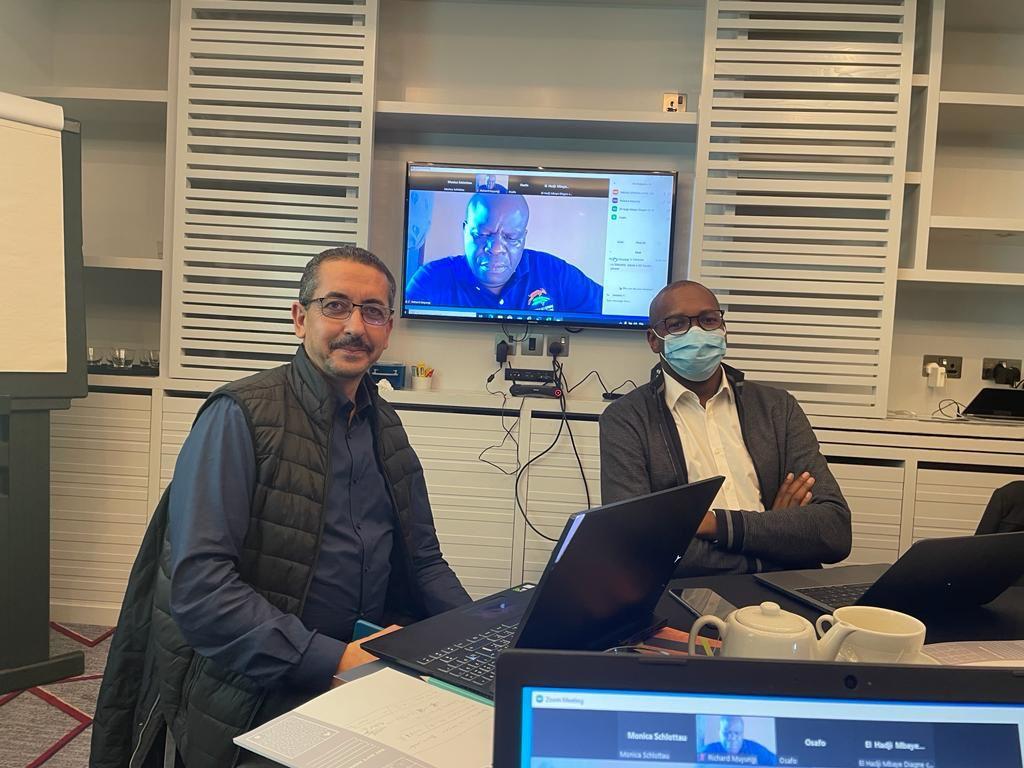
At the upcoming UN climate summit in Glasgow, African negotiators will be pushing for a new system to track funding from developed countries.
They will also be advocating for bigger emissions cuts.
African countries emit less than 3% of the world’s greenhouse gasses, but are feeling some of the biggest impacts from climate change.
Meanwhile, vegetable sellers like Asantewaa say they can’t afford to buy as much produce as they used to. Over the last seven years, climate change has made seasonal droughts worse in northern Ghana, where most of the country’s food is grown.
Deserts are spreading and when the rains finally come, they are so strong that homes, crops and livestock are washed away.
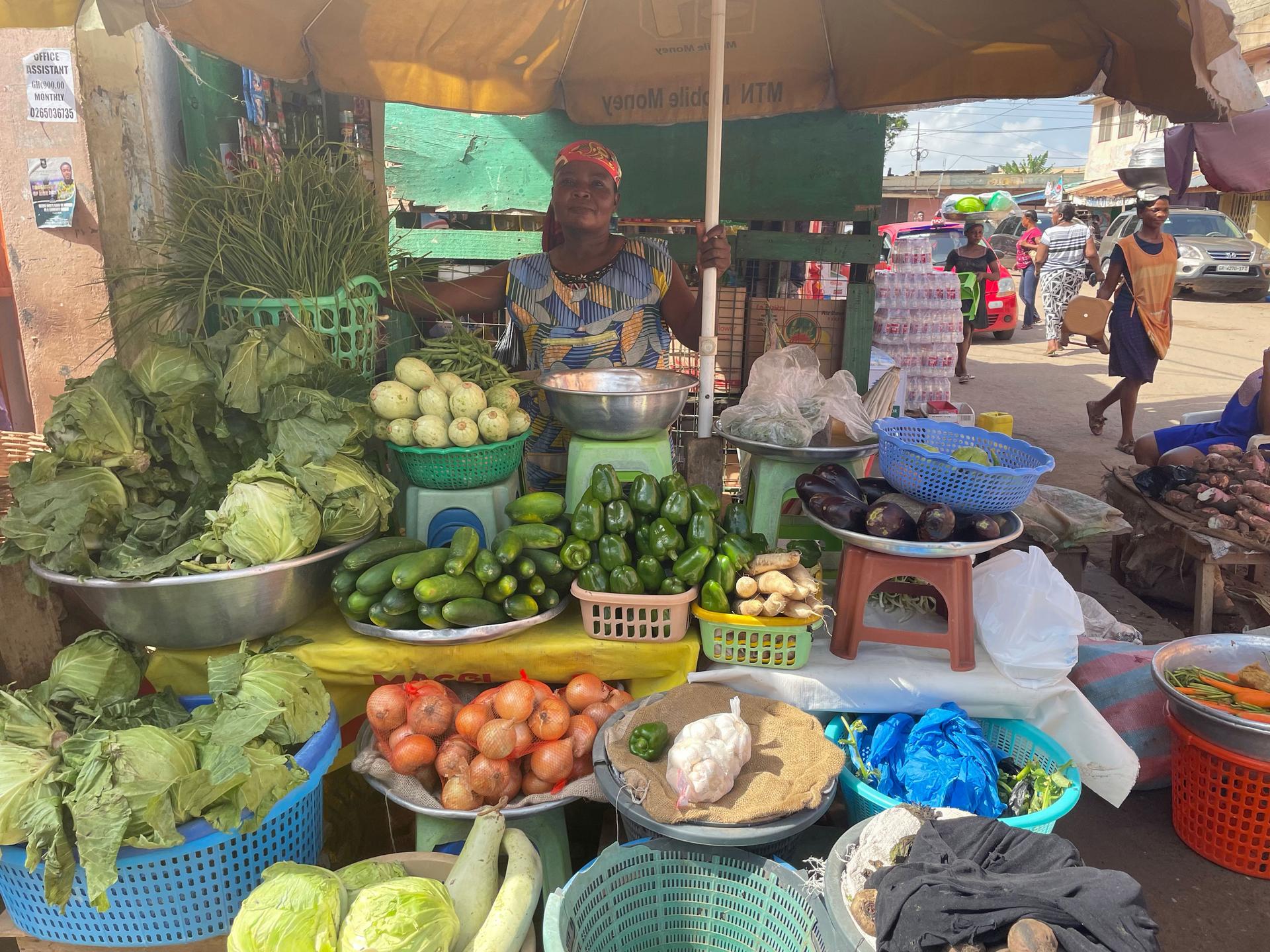
Asantewaa said she’s had to nearly double her vegetable prices, which discourages buyers.
“Someone will come and ask for the price of cabbage or carrot and once you mention it, they will say they will be back, but they never return. Sometimes when you try explaining that it is the weather, they refuse to understand it,” she said.
